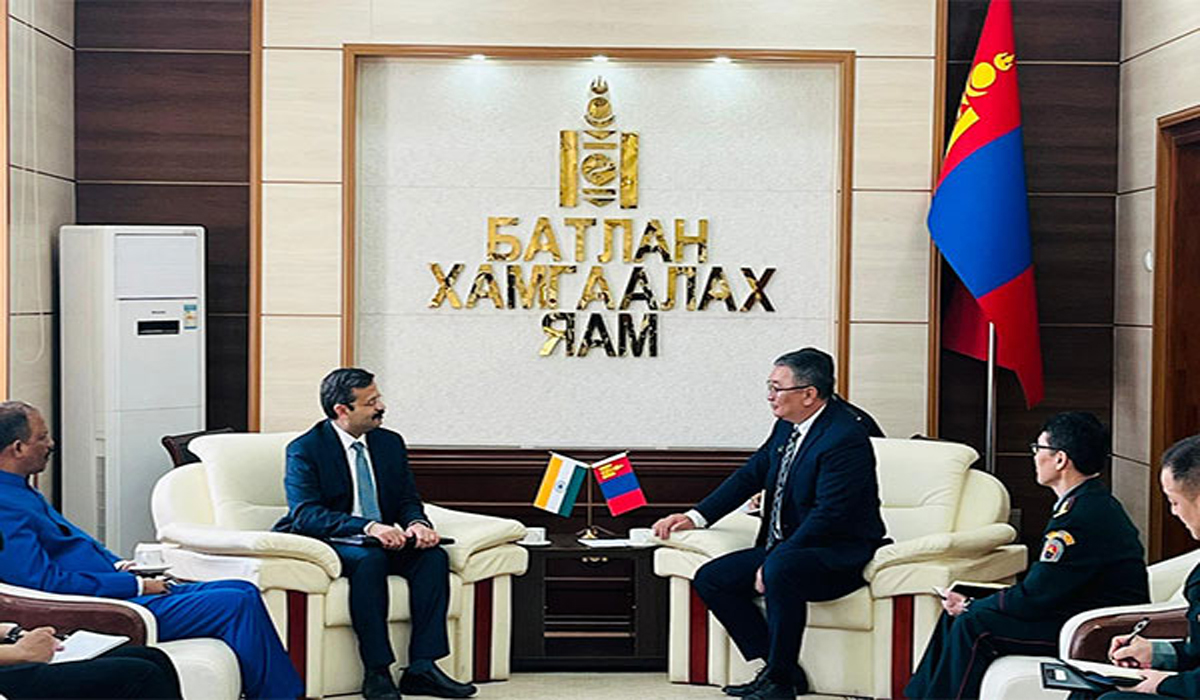
New Delhi : World’s largest landlocked country, near China hold talked with India for development in defence sector. Defence Ministries of India and Mongolia organised the 12th Joint Working Group (JWG) meeting on May 16-17 in Ulaanbaatar, Mongolia and reviewed the progress on various bilateral defence cooperation initiatives. To identified means to further enhance cooperation between the two countries.
The meeting was co-chaired by the Joint Secretary (International Cooperation), Ministry of Defence Amitabh Prasad and State Secretary of Ministry of Defence, Mongolia Brigadier General Gankhuyag Davagdorj.
India’s Ambassador to Mongolia Atul Malhari Gotsurve also attended the meeting.
During the JWG, both sides expressed satisfaction at the ongoing defence cooperation between the two countries.
“They reviewed the progress on various bilateral defence cooperation initiatives and identified means to further enhance cooperation in these areas, articulating steps in this direction,” the Ministry of Defence said in a statement.
Moreover, both sides also exchanged views on the current geopolitical situation.
Joint Secretary Amitabh Prasad highlighted the potential of the capacity and capability of the Indian defence industry and looked forward to a fruitful partnership with the Armed Forces of Mongolia.
The Mongolian side exuded confidence in the capacity and capability of the Indian industry.
Both sides also acknowledged the growing ties between the two countries.
The Joint Secretary and the Indian Ambassador also called on the Deputy Defence Minister of Mongolia B Bayarmagnai, and discussed bilateral cooperation issues.
The delegation visited a training establishment in Ulaanbaatar, Mongolia and reviewed the ongoing engagements, the statement read.
India enjoys age-old historical, cultural and civilisational ties with Mongolia and both countries regard each other as ‘Spiritual Neighbours’.
In modern times, values like democracy, freedom and market economy hold the two nations closer.
